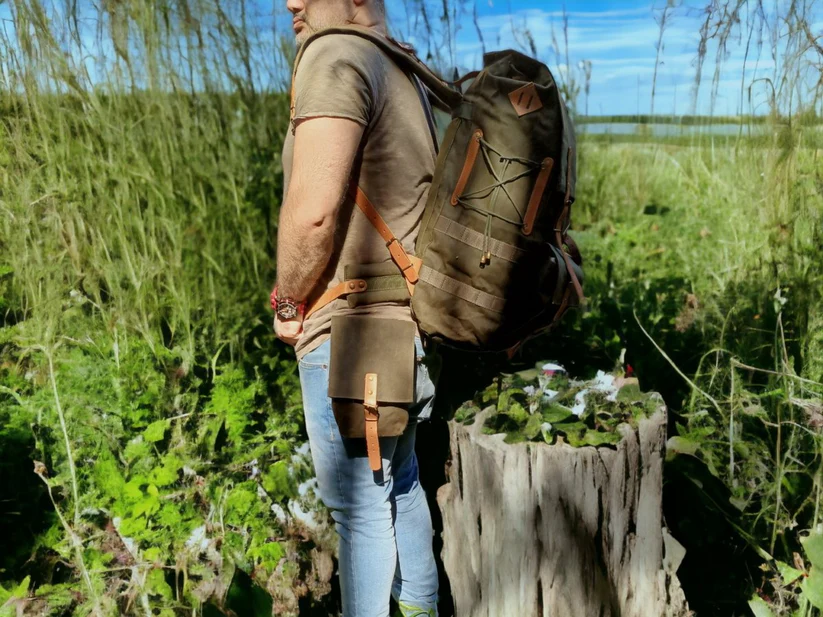Camping is an exciting way to connect with nature, but it also comes with its share of risks. From unpredictable weather to uneven terrain and unexpected emergencies, outdoor adventures require preparation and the right gear. Among all the equipment you carry, your backpack plays the most crucial role. It is not just a bag to hold items; it is your portable safety system that ensures you are equipped to face the challenges of the wilderness.
Why a Backpack is Central to Outdoor Safety
A reliable Camping backpack is essential for keeping your gear organized, protected, and accessible when you need it most. More than just a storage solution, the right backpack contributes directly to your physical safety by distributing weight evenly and allowing you to move comfortably on long hikes. It also helps protect vital supplies—like first aid kits, food, and shelter—from environmental hazards. Without a well-packed and properly fitted backpack, even short trips can turn into uncomfortable or risky experiences.
Balanced Weight Distribution
One of the primary safety features of a backpack is its ability to distribute weight. Carrying gear unevenly or improperly can cause muscle strain, fatigue, or even falls. A well-designed camping backpack ensures that heavier items, such as food or cooking equipment, sit close to your body’s center of gravity. This keeps you stable on rocky or slippery paths. Proper balance reduces the risk of back injuries and allows you to conserve energy, which is critical in survival situations.
Protection Against Weather Conditions
Weather is one of the most unpredictable aspects of the outdoors. Rain, snow, or even excessive sun exposure can quickly affect your comfort and safety. A durable backpack made from water-resistant materials acts as the first line of defense, keeping essential gear dry and functional. Storing clothes, sleeping bags, and electronics in waterproof compartments or dry bags within your backpack adds an extra layer of security. Without this protection, wet gear can lead to hypothermia, poor sleep, or malfunctioning tools—all of which compromise safety.
Accessibility in Emergency Situations
Quick access to vital gear is another way your backpack contributes to safety. In case of an emergency, such as an injury, being able to immediately grab a first aid kit can make a huge difference. Similarly, keeping items like a headlamp, map, compass, or water purification tools in easily accessible compartments ensures you don’t waste time searching when urgency is required. A poorly organized backpack can delay response time and increase the risk of accidents becoming more severe.
Reducing Fatigue on Long Treks
Fatigue is one of the biggest threats to outdoor safety. Tired campers make slower decisions, are more prone to injuries, and may underestimate environmental risks. A well-fitted backpack with adjustable straps, padded hip belts, and ergonomic support helps distribute weight across your body, reducing strain. When you conserve energy, you stay alert and capable of making sound decisions—even after hours of hiking.
Storage for Safety Essentials
Your backpack is essentially your mobile safety kit. It carries items that directly contribute to survival in the outdoors:
- First Aid Supplies: For treating cuts, burns, or sprains.
- Navigation Tools: Maps, compass, or GPS devices to avoid getting lost.
- Shelter: Tent, tarp, or hammock for protection against the elements.
- Fire-Making Gear: Matches, lighters, or fire starters to stay warm and cook food.
- Food and Water: Lightweight meals and purification systems for hydration.
- Lighting Tools: Headlamps or flashlights for visibility after dark.
Without a backpack, carrying and organizing these essentials would be nearly impossible, leaving you exposed to unnecessary risks.
Emergency Communication
Some backpacks are designed with safety-specific features such as whistle buckles or reflective strips. While small, these features can be lifesaving. A built-in whistle can signal for help in emergencies, while reflective material makes you visible in low light conditions. For campers venturing into remote areas, storing communication devices like a satellite phone or emergency beacon in your backpack ensures you can call for assistance when needed.
Preventing Overexertion
Another overlooked aspect of outdoor safety is the tendency to carry too much gear. A high-quality camping backpack encourages efficient packing, with compartments that help prioritize essentials over unnecessary items. Overpacking adds extra weight, which can cause exhaustion and slower movement—two factors that put campers at greater risk. Smart packing not only lightens the load but also ensures that you bring what truly matters for survival and safety.
Supporting Mental Comfort
Outdoor safety isn’t only about physical preparedness—it’s also about peace of mind. Knowing your backpack contains everything you need, neatly organized and protected, reduces stress. This mental comfort allows you to enjoy the journey without constantly worrying about whether you forgot something crucial. A calm, focused mindset is vital for making rational decisions in the outdoors, especially under pressure.
Common Safety Mistakes to Avoid
While backpacks are central to safety, many campers make mistakes that reduce their effectiveness:
- Ignoring waterproofing: Leaving gear vulnerable to rain.
- Poor weight distribution: Causing back strain or imbalance.
- Overpacking: Adding unnecessary items that lead to fatigue.
- Lack of organization: Making emergency gear difficult to access.
- Improper adjustment: Not fitting the backpack correctly to the body.
Avoiding these mistakes helps maximize both comfort and safety during your adventure.
Final Thoughts
The role of a camping backpack in outdoor safety cannot be overstated. It is more than a storage tool—it’s your shield against the elements, your organizer during emergencies, and your partner in maintaining balance and endurance on the trail. By packing smart, adjusting for comfort, and using your backpack as a safety system, you not only enhance your outdoor experience but also protect yourself from unnecessary risks. When you step into the wilderness, the right backpack ensures that safety always travels with you.

